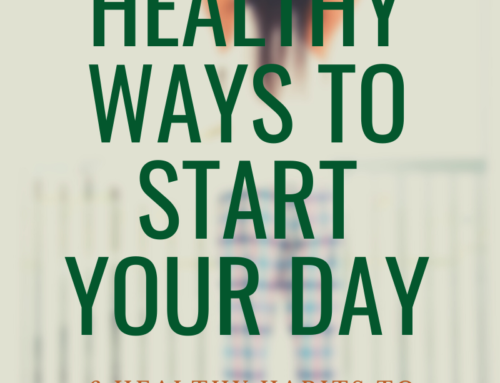The holiday season is officially upon us. How do we stay as sane as possible in an insanely impossible year? By incorporating self-care strategies.
It will be vital to your mental stability to prioritize your own self during the holidays. Here are 5 good places to start.

1. Set boundaries and be ok with saying ‘no’
Boundaries are limits you set for yourself that determine what you will or won’t participate in. Setting boundaries for yourself ensures that your needs are met. When your own needs are being met, you are able to take care of others without resentment. If you have difficulty setting boundaries here are a few tips:
Self-care strategies for setting boundaries
-
Arrange your own transportation.
Knowing you can leave an event if you begin to feel overwhelmed can help decrease your anxiety.
-
Plan the time you spend with family or friends ahead of time.
Talk to your spouse, partner, or other family members well before the holiday event about how long you want to spend at the event.
-
Avoid controversial conversations.
For a lot of people holiday conversations are a trigger for stress. We are seeing family or friends that we don’t often see at other times of the year. And some of those family members may be people that we wouldn’t normally socialize with if they weren’t part of our family.
If you feel strongly about certain topics and you typically feel anxious about listening to others who feel just as strongly in a different direction, then set the boundary to not discuss sensitive topics and politely excuse yourself.
-
Create new traditions.
As crazy as it may sound, your holiday traditions may contribute to your stress. The feeling of living up to (or not living up to) past holidays can cause you to feel anxious. If you are tired and not up to doing what you always do during the holiday, that is fine. Create a new tradition. Create new experiences every year if you want to.
Tips for saying ‘no’
Once you’ve set your boundaries, be ok with saying no. Your boundaries will not work without this critical step. If you’ve negotiated half a day on Christmas Eve with your in-laws and they are trying to get you to stay longer, feel confident in responding with ‘no’. Tell them you’ve had a wonderful time and have enjoyed the visit but it’s simply time to go home.
Likewise, if you’ve decided to stay home for the holiday and seeing your family virtually is the best decision for you, do not let others make you feel guilty about this decision. It is ok to do what you need to do for your own family or self to feel safe throughout the holidays. Saying no is not selfish, it can actually be self-preserving.
2. Move Your Body
Exercise can be extremely restorative. Physical activity reduces stress, improves mood, increases concentration and combats depression. Research shows that even just ten minutes a day of physical activity can trigger the brain hormones serotonin and dopamine which are the same hormones targeted by antidepressants and anti-anxiety medications.
Stay Active All Day
Exercise doesn’t always have to be full out high intensity sweat fests for you to feel the benefits. Moving your body is good for your body. As a matter of fact, a growing body of research is showing that sitting too much is not the same as exercising too little. This means that people who exercise regularly and still sit too much are actually considered sedentary.
For example, if you run 3 miles every morning and that takes you roughly 30 minutes, you may think of yourself as active. But if you have a job where you are sitting the majority of your 8 hour work day, sitting in a car during your commute, then sitting in front of the TV before bedtime, your lifestyle is not very active.
Self-care Strategies for Movement
At work, take short breaks to get up from your desk and walk around your building. Use a restroom a little further away from your desk. Park a little further out in the parking lot. Try an adjustable stand up desk.
At home, take a short walk after dinner to reflect on your day. Work in the yard, turn on some music and dance in your living room, ride a bike, create sidewalk chalk obstacles with your kids. Any movement is good movement. Physical activity doesn’t have to feel like ‘exercise’ to give you the benefits.
Try movement that is unconventional. Or choose an activity that you truly enjoy and that you will want to prioritize into your day.
3. Practice gratitude
Studies show that practicing gratitude can release serotonin and dopamine. Just considering “what am I grateful for” increases these happy hormones even if you don’t come up with an answer.
Searching for things to be grateful for builds positive emotional pathways in your brain. Oftentimes, by the end of the year life seems so tough for so many reasons and sometimes it is difficult to find things to be thankful for. While finding the energy and time to exercise may be tricky some days, pausing to feel gracious for even something so small like waking up each morning, is pretty simple.
If you don’t know where to start, start small, like feeling gratitude for a crisp sunny day or a loyal pet or making it to the holiday season during a challenging year. Expressing positivity outwardly will create positivity inwardly and help you better manage a stressful holiday.
4. Meditate
Mediation and practicing gratitude may go hand in hand, but they are not the same thing. It’s important to do both in order to take good care of yourself. According to the Merriam-Webster dictionary, to meditate means “to engage in contemplation or reflection; to engage in mental exercise (such as concentration on one’s breathing or repetition of a mantra) for the purpose of reaching a heightened level of spiritual awareness”.
There are many health benefits to meditation including better focus and concentration, improved self-esteem and lower stress and anxiety. There are several apps available for free or for purchase that offer guided meditations. I use the Calm app and have been enjoying the sleep meditations at bedtime. I also recently discovered the Ego-less Family Meditation app and it is amazing for kids and families to explore together.
Meditation Tips for Beginners
But, you don’t need an app to meditate. You can practice on your own. Like most things, you may want to start small. It can be difficult to shut your mind off when you have so much going on in your head.
- Start with just two minutes
- Decide on a time of day
- Find a quiet place free from distractions
- Sit comfortably with your eyes closed and just focus on your breath
Meditation is like journal writing, there is no right or wrong way to do it. You just do what feels comfortable and calming for you. Use the time to not focus on anything at all. Or, use the breaths to focus on relaxing a sore muscle.
Similarly, you can also take deep breaths and think about the small things you are grateful for. Once you get the hang of it, you can begin to extend the time by adding on a minute or exploring some of the apps.
Additionally, yoga may also be a helpful way to meditate. With yoga, you can participate in movement, meditate and use the end of a yoga session to practice gratitude. There are several free yoga videos available online. Whatever you decide, start with two minutes a day and sit with yourself to just breathe as you get ready for the holidays.
5. Feel your feelings
“Emotional eating” is at an all time high for a lot of people around the holidays. Stress and anxiety are a natural part of the holiday season. Food and drinks are a common and often welcome distraction to our challenging emotions. It is important to map out your holiday as best you can beforehand so you have a mental plan to stay mindful while you eat this year.
Self-care Strategies for Emotional Eating
- Think about, talk about and set your boundaries. As mentioned before, setting clear boundaries will deter unexpected conflicts that could trigger emotional eating.
- Exercise gently and meditate daily so that you have a clear, more relaxed mind and are better equipped to handle stressful situations.
- Stay mindful when you eat. You absolutely 100% should eat when you are hungry. Make sure you are paying close attention to your body’s hunger cues.
When stressful events or conversations come up and you want to reach for a snack, stop to consider if you are truly hungry or emotionally driven to eat. When you take a break to listen to what your body needs you can determine if yes, you are physically hungry or no, you are not.
If not, maybe try a meditative walk or call a friend to talk about the emotional trigger or journal what you are feeling. Emotional eating oftentimes leads to guilt and food should never make you feel guilty.
Acknowledging negative feelings can be a powerful way to overcome those feelings. Recognize that you are stressed, take a moment to figure out what you need in that moment and then ask for the help you need. Feel whatever you are feeling and be ok with that.
Self-care is Self-Preserving
Self-care is not selfish. In fact, it is the exact opposite of selfish, it is self-preserving. Taking care of yourself should be a priority and you should not feel guilt about that at all, ever. This article gives examples of how to incorporate self-care strategies, but really you should do whatever it is that makes you feel good.
If you begin to feel overwhelmed, take a time out; be by yourself; take a warm bath. Or, maybe you’ve been isolated for a while and what you need is comfort from a friend. Reach out to whomever makes you feel good about yourself.
I know this year has been odd and some of you may be looking forward to the holidays as a distraction from the crazy while others may be feeling anxious about it. Whatever your soul needs, do that. If you are feeling anxious try some of my self-care strategies and see how you feel. If you need more help, contact me.



Great job, Linda! Emily Anschlower shared your website with me. Looks great!
Thank you, Dena! I appreciate the feedback .